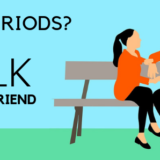𝐑𝐢𝐬𝐤 𝐅𝐚𝐜𝐭𝐨𝐫𝐬 𝐟𝐨𝐫 𝐎𝐬𝐭𝐞𝐨𝐩𝐨𝐫𝐨𝐬𝐢𝐬

“Osteoporosis means “porous bone.” It happens when you lose too much bone. As a result, your bones become weak.”
Risk Factors:
Gender – Women are much more likely to develop osteoporosis than are men.
Age – Women over the age of 50 or postmenopausal women have the greatest risk of osteoporosis. Women experience rapid bone loss in the first 10 years after entering menopause. This bone loss is because menopause decreases the production of estrogen, a hormone which protects against excessive bone loss.
Race – Caucasian or Asian race, thin and small body frames. However, African American and Hispanic women are still at risk. In fact, African American women are more likely than white women to die after a hip fracture.
Family history— If your parents or grandparents have had any signs of osteoporosis, such as a fractured hip after a minor fall, you may have a greater risk of developing the disease.
Nutrition — Poor diet. Getting too little calcium over your lifetime can increase your risk for osteoporosis. Not getting enough vitamin D — either from your diet, supplements, or sunlight — can also increase your risk for osteoporosis. Vitamin D is important because it helps the body absorb calcium. An overall diet adequate in protein and other vitamins and minerals is also essential for bone health.
Lifestyle & Physical inactivity — People who lead sedentary lifestyles have a higher risk of osteoporosis. Not exercising and being inactive or staying in bed for long periods can increase your risk of developing osteoporosis. Like muscles, bones become stronger with exercise.
Medications — Certain medications result in side effects that may damage bone and lead to osteoporosis. These include steroids, breast cancer treatments, and medications used to treat seizures, some medicines that treat endometriosis; and some cancer drugs. Using too much thyroid hormone for an underactive thyroid can also be a problem. Talk to your doctor about the medications you are taking and what you can do to protect your bones.
Smoking — Smoking increases the risk of fractures. Smokers may absorb less calcium from their diets.
Alcohol use -Consumption of 1-2 drinks a day (or more) increases the risk of osteoporosis
Medical Conditions –Those with the following conditions should consider earlier screening for osteoporosis:
- Overactive thyroid, parathyroid, or adrenal glands
- History of bariatric (weight loss) surgery
- Hormone treatment for breast or prostate cancer
- Eating disorders (bulimia, anorexia)
- Organ transplant
- Celiac disease
- Inflammatory bowel disease
- Missed periods












posted comments